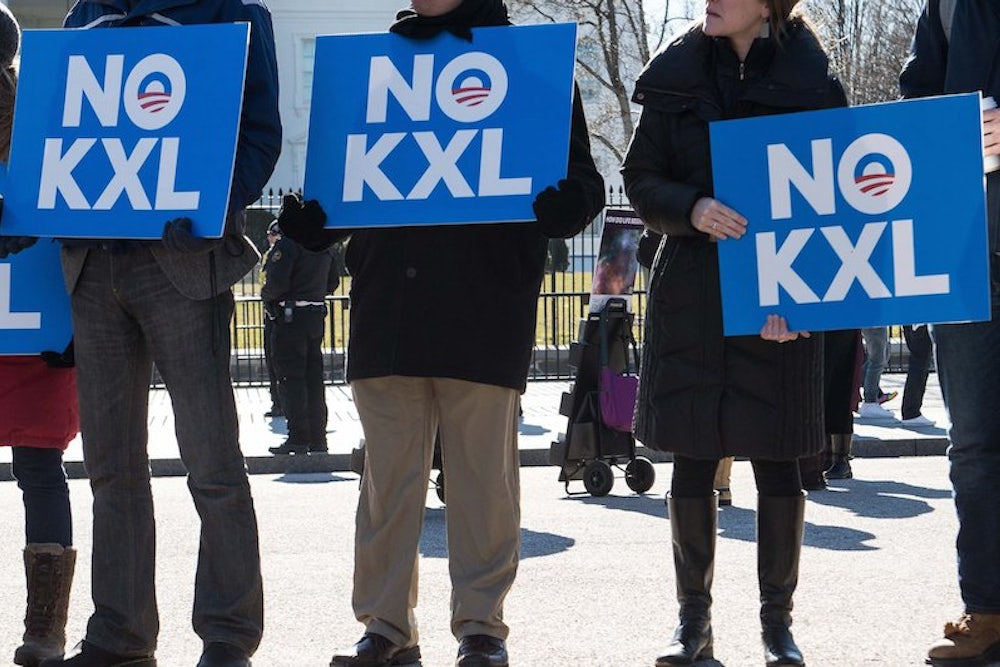The new Republican-controlled Senate spent 13 of its last 14 days in session debating a bill that President Barack Obama will veto anyway. Little of this debate has focused directly on the nominal issue—whether Congress should approve the Keystone XL pipeline, which would carry 800,000 barrels of crude oil a day across the U.S. The Senate instead spent the last three weeks voting on and debating roughly 50 amendments. Just five so far have reached the necessary 60 votes to pass.
What were these five? In two of the cases, they were watered-down alternatives to pro-climate and environmental amendements for Republicans looking to escape future campaign attack ads. One was a non-binding resolution, approved by 98 senators, saying that “climate change is real and not a hoax” (the amendments that said climate change is human-caused, though, fell short of 60 votes). A second resolution asserted “private property is protected as guaranteed by the United States Constitution," passing with 64 votes. It was a conservative-friendly version of New Jersey Democrat Robert Menendez's proposal that restricted the use of eminent domain for the pipeline. Maine Republican Susan Collins got approval for an amendment in favor of energy-efficient retrofitting for schools. A fourth from Alaska's Lisa Murkowski clarifies the Senate doesn't think tar sands oil should be excluded from paying a 8-cent excise tax to fund a trust fund to pay for oil-spill cleanup. The most substantial of the five is a version of Rob Portman and Jeanne Shaheene’s popular energy-effiency bill, which Republicans filibustered last year when they weren't allowed to add pro-fossil fuel amendements.
Many more amendments have failed, usually along party-line votes. Three of four amendments on climate change science saying humans bear responsibility for climate change failed, as did GOP amendments aiming to restrict Obama's pledges on carbon emissions and international aid. Other Republican proposals would have rolled back public land conservation, animal protections, and more. For example, Kansas' Jerry Moran proposed removing federal protections for the lesser prairie chicken. And Alaska’s Lisa Murkowski challenged Obama’s request to protect 12.3 million acres of the Arctic National Wlidlife Refuge from oil drilling. Ted Cruz wanted to approve exports of liquefied natural gas. Democratic, meanwhile, attempted amendments that reinstated an expired wind tax credit, asserted the U.S.’s responsibility to commit to financing infrastructure that’s resilient in climate change, and protected funding for the Low-Income Home Energy Assistance Program.
For the most part, the amendment battle means as little as the bill itself, which always faced a dead-end at Obama's desk. Later today, the Senate is expected to hold its final vote on Keystone, and let's hope they finally move on to something that stands a chance of becoming law.
